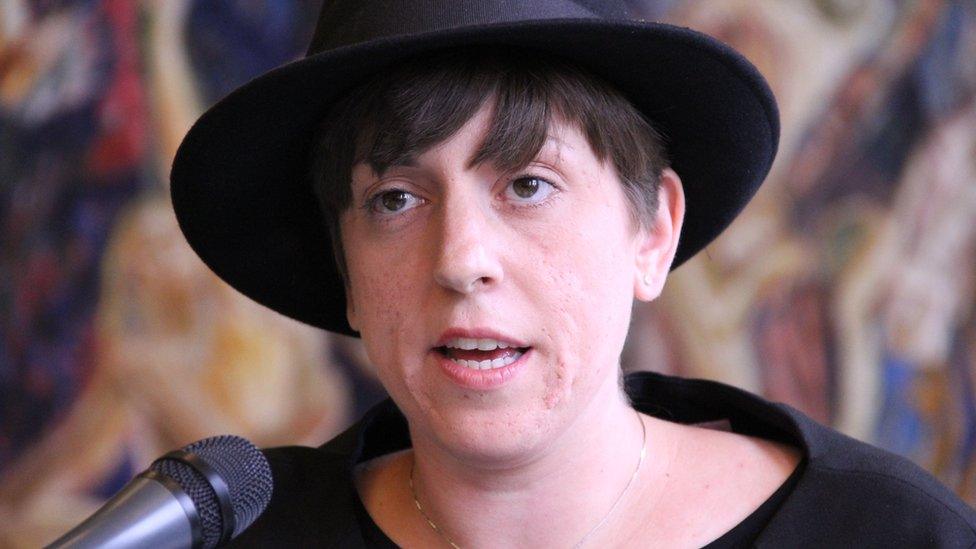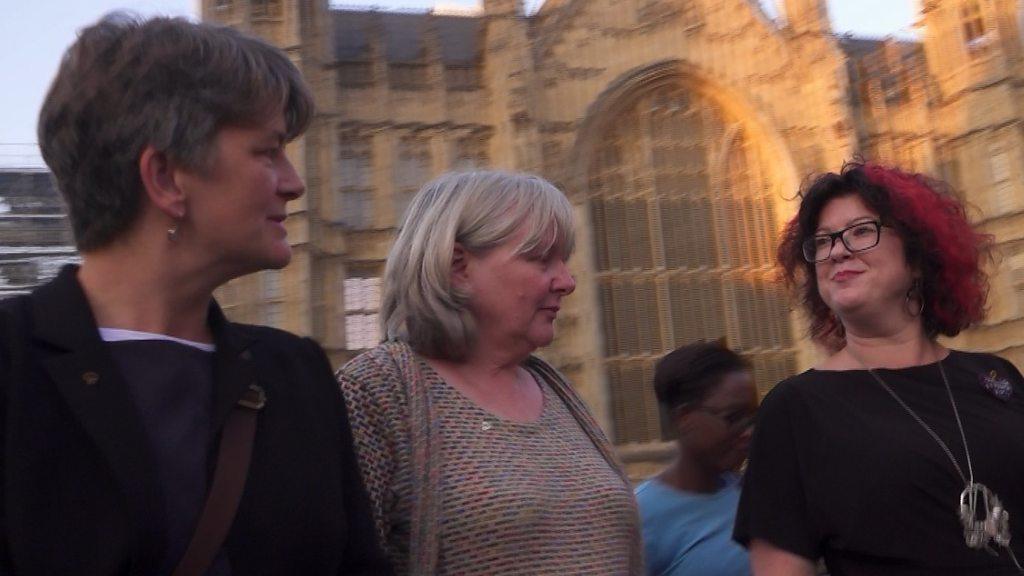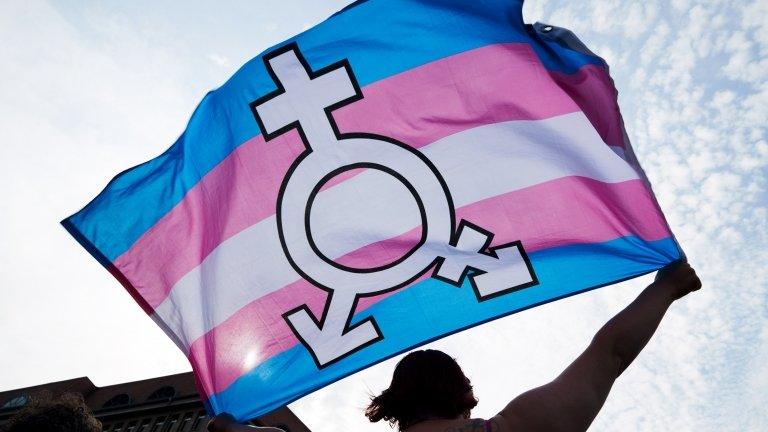Rosa Freedman: Professor's door 'covered in urine' after gender law debate
- Published

Prof Rosa Freedman said she had decided to "push back" against abusers
A professor has said she faced online abuse and found her office door "covered in urine" after debating proposed gender law changes.
Prof Rosa Freedman said she feared for her safety after the reaction to her discussing a government consultation, external on how people can change their gender.
The human rights lawyer had raised concerns on how the changes might affect women's rights.
The University of Reading said staff and student safety was a top priority.
Prof Freedman, who has said she is against self-identification, attended debates on the plans to change the Gender Recognition Act.
She told the BBC that afterwards she found her door had been covered in urine.
Prof Freedman also said she was called a "Nazi" who "should be raped" and added it was a "tipping point" for her to "push back" against the abusers when she received anonymous phone calls.
'Anonymous cowards'
Prof Freedman added: "I'm pretty public and open about the fact that I'm Jewish.
"I'm pretty public and open about the fact I've survived sexual violence - I have been throughout these debates.
"So obviously being told I'm a Nazi and being told I'm transphobic when I'm not transphobic and nothing I've said or done is transphobic...having been told I should get raped. None of them are particularly pleasant."
Dr Chloe Houston, an associate professor at the university, tweeted to "100% condemn the abusive treatment" of her colleague by "anonymous cowards".
She added: "Rosa has not expressed transphobic views and she is not transexclusionary."
Allow X content?
This article contains content provided by X. We ask for your permission before anything is loaded, as they may be using cookies and other technologies. You may want to read X’s cookie policy, external and privacy policy, external before accepting. To view this content choose ‘accept and continue’.
A University of Reading spokesman said Prof Freedman had "worked extensively throughout her career on the rights of women and the LGBT community".
He added: "We explicitly respect the right of our trans staff and students to self-identify their gender.
"This is entirely consistent with our strong defence of the principle of academic freedom and the role of universities and academics in public debate."
- Published19 October 2018

- Published19 October 2018

- Published17 October 2018

- Published30 May 2018
